NEWS
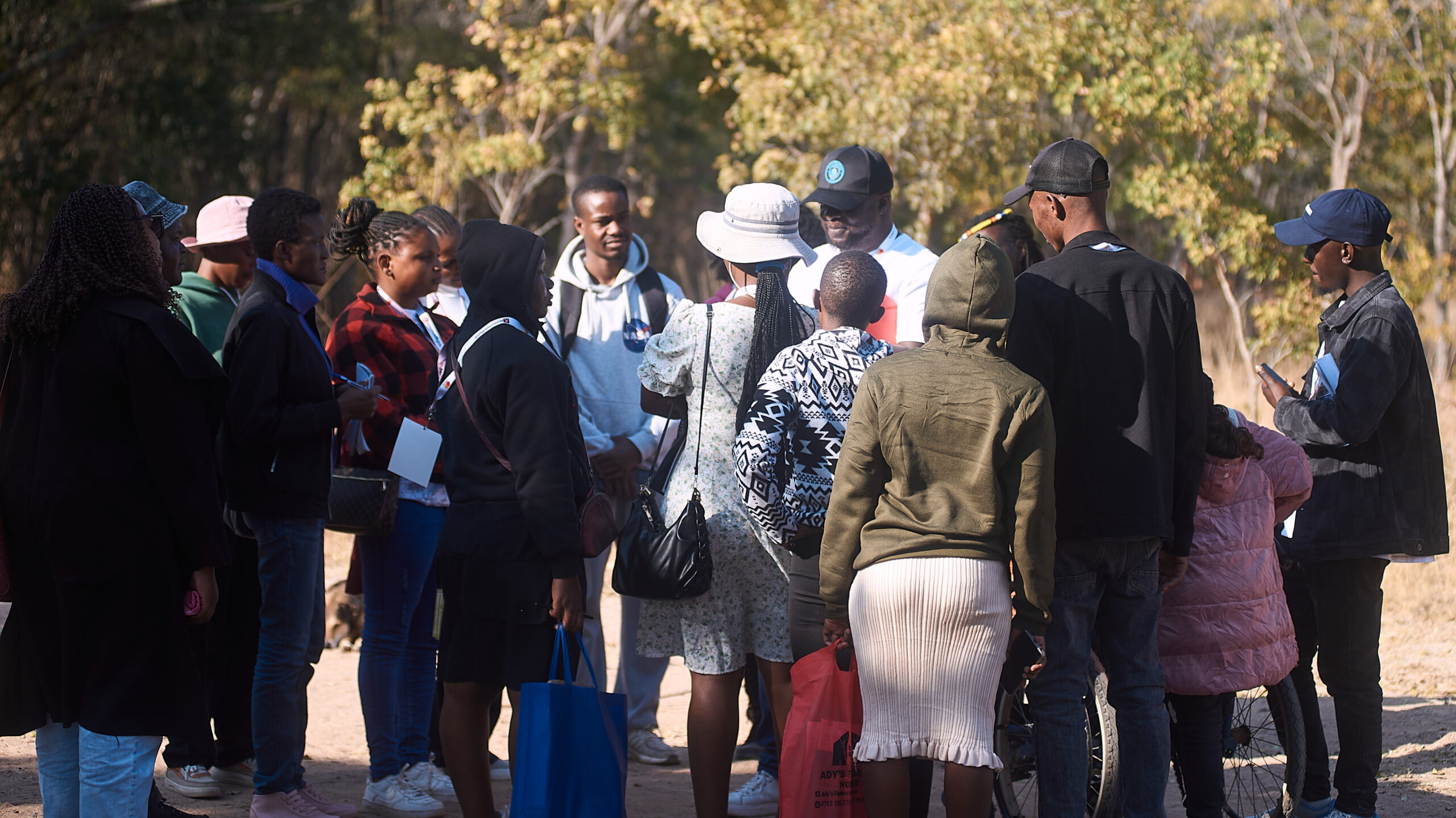
IN BRIEF
From 24 to 27 June 2025, the African Youth Panel […]
SHARE
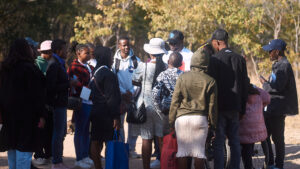
A group of Zimbabwean African Youth Panelists during a PAR refresher session with Dr. Lewanika at Kufunda Learning Village, held before they visited Hampton Farm for data collection on dignified and fulfilling work for youth.
From 24 to 27 June 2025, the African Youth Panel (AYP) foundational workshop brought together 20 young individuals from marginalised and hard-to-reach communities in Zimbabwe for an immersive week of learning. The workshop included sessions on various elements of Participatory Action Research (PAR), leadership, personal development, and community engagement.
The AYP, a result of a partnership between Mastercard Foundation and TrustAfrica in ten African countries, has Accountability Lab as the anchor institution in Zimbabwe (ALZ). The initiative serves as a platform for young Africans to explore ways to create secure and sustainable futures by identifying issues and barriers that hinder their access to meaningful work in their communities and fields of interest, and by beginning to curate and design solutions to address these.
Among those present was Farirai Gumbonzvanda, a 2024 ALZ Fellow who participated as an observer and support team member. For Farirai, the workshop was more than a professional opportunity; it was a reminder that research, when conducted ethically and intentionally, can become a transformative tool for justice.
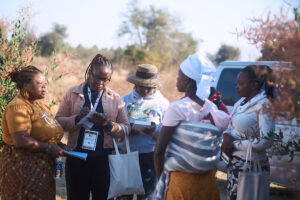
Farirai Gumbonzvanda (far left) joins panelists, from left to right: Naomi Kasonga, Keleen Vhisande, Kudzai Mudiriza, and Sibonginkosi Dube, as they interview a Hampton Farm resident in a pink T-shirt with a child on her back.
Dr. McDonald Lewanika, ALZ’s Regional Director for Southern and Eastern Africa, stated during a session on Participatory Action Research that “Research must never harm the people it seeks to learn from.”
That line stayed with Farirai all week.
The Foundation workshop, facilitated by Kufunda Learning Village, included lessons in research methods, leadership, communication, and self-development.
It highlighted that PAR is not just a methodology, but a mindset. A mindset grounded in the belief that those most impacted by development challenges must be central in defining the questions and shaping the solutions.
The workshop was also deeply informed by Accountability Lab’s experience with Civic Action Teams (CivActs), a pioneering PAR model that ensures citizen feedback, dialogue, and community voice remain at the centre of the development process. CivActs uses trained Community Frontline Associates who employ tools like Kobo Collect to gather both qualitative and quantitative data through surveys and community engagements, including listening meetings, feedback forums, and policy dialogues.
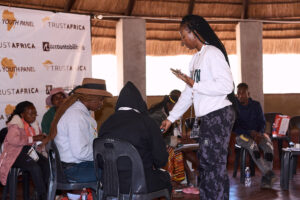
Bathabile Dlamini, Media and Communications Officer at ALZ facilitating a hands-on session on KoboCollect during the AYP Foundational Workshop. The session focused on building participants’ capacity in digital data collection using KoboToolbox, covering form design, deployment, offline data capture, and ethical considerations for participatory research
The approach also incorporates less formal yet powerful techniques such as journaling, home visits, deep hangouts, and photography. The CivActs model operates through five iterative stages: Listen, Collect, Interpret, Disseminate, and Act, offering participants at the AYP workshop a concrete, field-tested model of how PAR can foster accountability and locally-driven change.
As the young panelists began crafting their inquiries about barriers to dignified work, gendered exclusions, and pathways for youth-driven change, they also learned what it means to enter communities not as experts but as listeners.
“Research is not about extracting stories, it is about entering spaces with humility and deep listening,” said Dr. Lewanika. “We must ask questions with people, not about them. Knowledge-making must be rooted in justice, care, and collaboration, not just reports.”
This ethic of care became essential when the panellists travelled to Hampton, a farmworker resettlement community, to put their learning into practice in real-world settings. There, Farirai observed a moment that exemplified the complexity of such engagements.
“We came in with big cars and nice clothes. They thought we were angels of money,” she recalled.
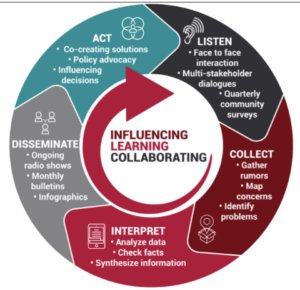
Accountability Lab’s CivActs Cycle
That moment was sobering. It showed how easily researchers, even well-meaning ones, can unintentionally strengthen power dynamics or create false hopes. As Farirai reflected, “If we are not intentional, we risk reinforcing the very messiah mentality we claim to resist.”
But this is where PAR demonstrates its strength. It does not promise aid. It does not don a savior’s cape. It does not assume that change must be imported. Instead, it invites learning and collaboration.
In sessions led by ALZ, panelists discussed the risks of extractive research, where pain is documented and communities are left confused or retraumatised. They were reminded that research is never neutral. Every researcher has their own bias, background, and history. Without reflexivity and care, research can cause more harm than good.
Throughout the week, the panelists were trained in tools and how to care. They learned to recognise power dynamics, to pause when participants show signs of distress, to treat consent as an ongoing conversation, and to protect both their well-being and the dignity of those they engage with. These lessons help ensure that communities are not just studied, but truly seen — that their voices, dignity, and knowledge matter.
As Farirai put it, “That is revolutionary.”
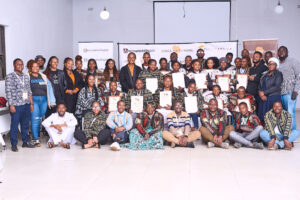
Group photo of African Youth Panellists, workshop organisers, funders, facilitators and support team after participants received their certificates for completing the foundational workshop.”
